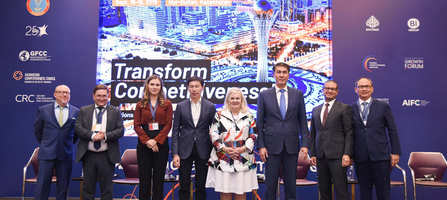
News
What do you remember about the year you worked for the Antimonopoly State Agency of Kazakhstan
12 August 2021


Kursiv journal
sources
The Agency for the Protection and Development of Competition appeared simultaneously with the Agency for Strategic Planning and Reforms - they were created by one decree dated September 8, 2020 by the President of Kazakhstan, Kassym-Jomart Tokayev.
Serik Zhumangarin was placed at the head of the new state body, whose last positions were somehow connected with antimonopoly regulation. For example, August 2014 - he became the Chairman of the Committee for the Regulation of Natural Monopolies and Protection of Competition of the Ministry of National Economy of the Republic of Kazakhstan, January 2017 - he became the Vice Minister of the National Economy, and 2019 - he became a member of the Board of the Eurasian Economic Commission (representing Kazakhstan) and the EEC Minister for Competition and antitrust regulation.
In September 2020, he returned from the supranational body of the EAEU to Kazakhstan, where he was appointed to his usual field - the fight against monopolies and for competition.
The tasks of the new state body were known even before its creation - Kassym-Jomart Tokayev announced them in his message to the people on September 1, 2020. Then the head of state said that competition policy is of paramount importance and it is necessary to "seriously diversify the competitive field, create truly equal opportunities for every entrepreneur, and stop the monopolization of markets."
“It is no secret that many market niches are densely “concreted” by non-market methods. Entrepreneurs cannot enter the market, and if they manage to enter, they are forced to submit to private monopolists. Anti-competitive manifestations persist everywhere: the market for coal, electricity, oil products, communications, pharmaceuticals, airport services, housing and communal services, and logistics. The list goes on,” said Kassym-Jomart Tokayev.
The president of the republic also said that it is necessary to deal with state and private "monopoly players," to put things in order with exchange trading, primarily in the field of oil products, electricity and coal.
“Therefore, we need a strong and independent body for the protection and promotion of competition. I instruct to create an Agency for the Protection and Promotion of Competition under direct subordinance to president,” the head of state said, and a week later he signed a corresponding decree. And Serik Zhumangarin, who was appointed a week later, September 14, set to work.
Initiatives, commodity exchanges, operators
The last of the open reports on the work of Antimonopoly State Agency of Kazakhstan (ASAK, or “AZRK” in Russian) is dated June 22 - following the results of the speech of its leadership at a government meeting. In his report, Serik Zhumangarin stated that the main barrier to the development of a competitive economy in Kazakhstan remains "a high level of concentration in key commodity markets and a high level of state participation in the economy."
According to AZRK, in terms of regulation, three barriers stand out on the way to building competition - access to key capacity, pricing distortions and selective patronage, or favoritism.
Key capacities are infrastructure or facilities that give market players the ability to provide their services to consumers. Examples of such capacity are the main railway network, communication ducts, primary metals for further processing, seaports, pharmaceutical substances and industrial technology.
According to Serik Zhumangarin, the principles of access to key capacity have already been determined, and those are payments, transparency, urgency, opportunity. Nothing was mentioned about the principles of pricing distortion and favoritism.
If we talk about specific industries, we can see that the agency started to work in many areas at once. But progress was not the same in all directions.
For example, exchange trading has "finally been transferred to a civilized track," according to Serik Zhumangarin. Trading in gasoline, bitumen, coal and liquified gas has begun, and by the end of 2021 it should expand with jet fuel, diesel fuel and wheat.
“For the first time, exchange trading in coal took place, where the quarries themselves are the basis for the supply. The first auctions of Karazhyra and Shubarkul showed that the savings for the consumer is about 20%,” the head of the AZRK reported in June.
The next important step is the regulation of public and private operators, and the president of the country Kassym-Jomart Tokayev gave instructions on that. By the summer of 2021, AZRK has identified 51 monopoly operators, 47 of which are state-owned. Among the private ones, for example, the “ROP Operator,” which is engaged in waste collection.
For 24 of them, a special law institute was proposed - they will be subject to strict price regulation, restriction of other activities, a ban on participation in other companies, publicity and compensation for losses to the business upon creation. For 18 of them, regulation is not necessary, since they provide public services and do not receive profit, but for 9 of them drastic measures are promised to be taken - four will be liquidated or privatized, and five may lose their operatorship, simply keeping them in the status of subordinate organizations. What kind of operators those companies are is unknown.
AZRK also plans to reduce state participation in entrepreneurship. Now the participation of the state in the economy is 14.8%, there are more than 2 thousand subjects of the quasi-public sector. The agency suggests that, if a sector is mature when looking at the number of SMEs, then regardless of types of activity it should be fully privatized.
Examples are dentistry, security companies, transport services and landscaping companies. Thanks to this, as Serik Zhumangarin's presentation says, state participation can be reduced from 14.8% immediately to 14% by 2025.
Their fight
The task of AZRK is to support the market environment in which it will be easier for conscientious players to work. However, some of the agency's initiatives countered antimonopoly regulation practices of market economies.
One such example is Serik Zhumangarin's statement in April that the agency is stimulating the emergence of a third mobile operator on the Kazakh market, in addition to Kazakhtelecom, which controls Kcell and Altel/Tele2, and Beeline.
“We are now trying to make sure that a third operator appears on the market. But there is a problem: no access to radio frequencies. The operator wants to get access to radio frequencies, and it is offered to first get a license, and then get access to radio frequencies, and when the company tries to get that license, they tell him: you first get a radio frequency. There is no way for that company to enter the market. Now we are solving this issue, and, God forbid, another mobile operator will appear next year,” Serik Zhumangarin said.
It was about the company "Transtelecom", which in the future four years could take 1.5% of the market, and in the long term - up to 5%. Against this background, there was a drop in quotations of the only public operator Kcell, whose stock prices began to fall due to this situation. The antimonopoly body's statement, according to analysts, could have aggravated the situation with the price of Kcell shares, which were already falling due to the delisting of GDRs from the London Stock Exchange with conversion into shares.
Since June 1, the company's securities have fallen in price by a third. Now Kcell remains the only operator with a listing on the exchange, and therefore it is not clear how Serik Zhumangarin's statement could affect the shares of the conditional Beeline or Tele2/Altel, if they had securities placed on the stock exchanges. In the meantime, it is clear that the statements of the regulator supported not the development of the mobile communications sector, but the fall in stock quotes of one of the players.
“In the West, such statements can cause panic in the securities market,” an anonymous representative of one of the Kazakh investment companies comments on the situation around Kcell. – Such statements by the regulator are contrary to the spirit of a market economy since the regulator does not provide any studies of the current situation and impact analysis to support its opinion. Ultimately, a situation when the regulator initiates and supports the emergence of a new player causes long-term damage to investment attractiveness.”
AZRK also actively engaged in the housing construction market, where "signs of concerted action were established, expressed in the establishment and maintenance of housing prices." These “signs” were about large construction companies - BAZIS-A, BI Group and Rams Qazaqstan. The agency demanded that they reduce prices for primary housing, and the business fulfilled this requirement, yielding from 4 to 15% of apartment prices for some residential complexes in Almaty.
This is happening against the backdrop of rising construction costs. By the summer of 2021, according to the monitoring of the Union of Builders of Kazakhstan, the price of a ton of rebar increased by 232% compared to 2020, M-400 cement by 218%, and M-350 concrete with delivery by 114%. Construction companies, agreeing to lower selling prices, reduce their profits, and hence the ability to reinvest funds in the national economy.
“It is necessary to cancel all acts affecting the freedom of setting prices and tariffs”.
Fighting monopolies and building competition in the Kazakh economy is a difficult task. Anuar Buranbaev, partner at the Center for Research and Consulting, notes that the economy has a high level of concentration in favor of large companies.
“And for quite natural reasons, they limit competition and draw on a significant part of state resources, using administrative and political influence,” says Anuar Buranbaev.
At the same time, Kursiv's intterviewee notes that even in such conditions there are positive developments. As an example, he cites the development of exchange trading, which will allow, according to Anuar Buranbaev, to form "a more or less fair market price and send signals to the markets."
On behalf of Kassym-Jomart Tokayev, President of Kazakhstan, a bill on the development of competition should be adopted in the country by 1 January 2022. This should provide a basis for the implementation of several decisions at once, according to Kursiv’s interviewee.
First, in his opinion, legislative and regulatory acts that directly or indirectly affect the freedom to set prices and tariffs should be abolished, except for entities subject to antimonopoly regulation. It is also necessary to expand the list of standardized goods and their volumes for exchange trading, primarily for energy, electricity and agricultural raw materials.
Thirdly, says Anuar Buranbaev, legal acts that create unfair privileges for individual market participants, apart from a limited number of state monopolies, should be abolished, and the institution of single operators should be abolished altogether.
“Fourth, and one of the most important points, is the state’s withdrawal from the economy as an active commercial player. The principle of the presence of the state as an economic entity only in the sectors of public goods creation should be implemented. In extreme cases, the state may retain control over strategic assets,” notes Anuar Buranbaev.
share
article
references
https://kz.kursiv.media/2021-08-12/chem-zapomnilsya-god-raboty-antimonopolnogo-gosorgana-kazakhstana/all publications











